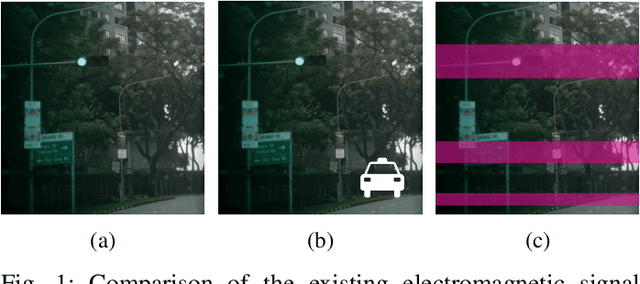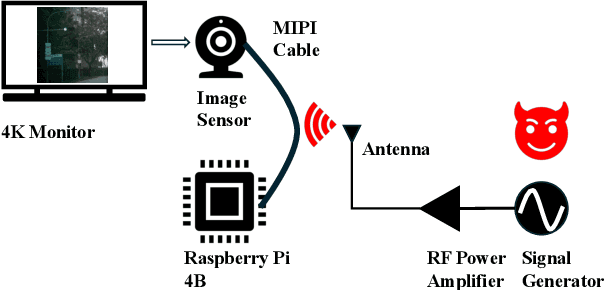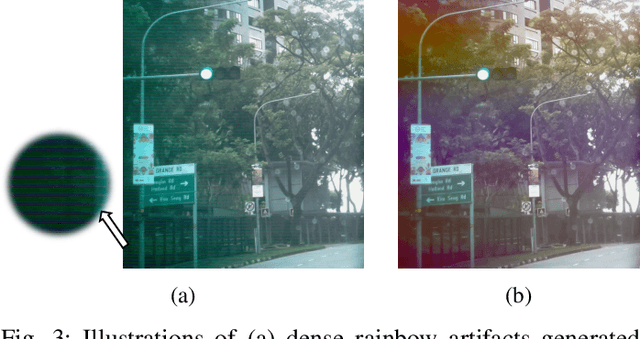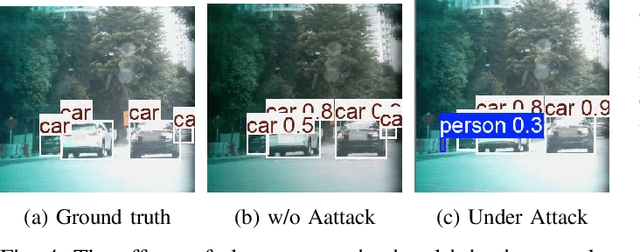Xinyu Ji
Rainbow Artifacts from Electromagnetic Signal Injection Attacks on Image Sensors
Jul 10, 2025



Abstract:Image sensors are integral to a wide range of safety- and security-critical systems, including surveillance infrastructure, autonomous vehicles, and industrial automation. These systems rely on the integrity of visual data to make decisions. In this work, we investigate a novel class of electromagnetic signal injection attacks that target the analog domain of image sensors, allowing adversaries to manipulate raw visual inputs without triggering conventional digital integrity checks. We uncover a previously undocumented attack phenomenon on CMOS image sensors: rainbow-like color artifacts induced in images captured by image sensors through carefully tuned electromagnetic interference. We further evaluate the impact of these attacks on state-of-the-art object detection models, showing that the injected artifacts propagate through the image signal processing pipeline and lead to significant mispredictions. Our findings highlight a critical and underexplored vulnerability in the visual perception stack, highlighting the need for more robust defenses against physical-layer attacks in such systems.
Modeling Electromagnetic Signal Injection Attacks on Camera-based Smart Systems: Applications and Mitigation
Aug 09, 2024



Abstract:Numerous safety- or security-critical systems depend on cameras to perceive their surroundings, further allowing artificial intelligence (AI) to analyze the captured images to make important decisions. However, a concerning attack vector has emerged, namely, electromagnetic waves, which pose a threat to the integrity of these systems. Such attacks enable attackers to manipulate the images remotely, leading to incorrect AI decisions, e.g., autonomous vehicles missing detecting obstacles ahead resulting in collisions. The lack of understanding regarding how different systems react to such attacks poses a significant security risk. Furthermore, no effective solutions have been demonstrated to mitigate this threat. To address these gaps, we modeled the attacks and developed a simulation method for generating adversarial images. Through rigorous analysis, we confirmed that the effects of the simulated adversarial images are indistinguishable from those from real attacks. This method enables researchers and engineers to rapidly assess the susceptibility of various AI vision applications to these attacks, without the need for constructing complicated attack devices. In our experiments, most of the models demonstrated vulnerabilities to these attacks, emphasizing the need to enhance their robustness. Fortunately, our modeling and simulation method serves as a stepping stone toward developing more resilient models. We present a pilot study on adversarial training to improve their robustness against attacks, and our results demonstrate a significant improvement by recovering up to 91% performance, offering a promising direction for mitigating this threat.
 Add to Chrome
Add to Chrome Add to Firefox
Add to Firefox Add to Edge
Add to Edge